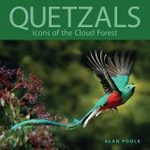Art / Photobook Flora / Fauna
By: Joseph M Forshaw(Author), William T Cooper(Illustrator)
344 pages, colour photos, 300+ colour & b/w illustrations, colour distribution maps
![A Natural History of Australian Parrots A Natural History of Australian Parrots]()
Click to have a closer look
About this book
Customer reviews
Related titles
About this book
This book is the final collaboration of Joseph M. Forshaw and William T. Cooper and combines the finest Cooper artwork with an updated, authoritative Forshaw text.
Presented as a deluxe edition, A Natural History of Australian Parrots is truly a combination of art and science including many previously unpublished Cooper drawings, sketches and paintings. Containing more than 300 artworks, it is fully cased in grey Ballantine cloth, with marbled endpapers and black foil blocking. The book is landscape format printed on fine quality satin art paper and the size is 305 mm [h] × 350 mm [w].
This book adopts an entirely new approach with the integration of an updated technical text and an exciting visual record of the beauty, diversity and appeal of Australian parrots. It is a tribute to William (Bill) Cooper, and features numerous previously unpublished field sketches, preliminary drawings and spectacular paintings of parrots in their natural environment.
No Australian artist has left such a wealth of scientifically accurate visual records of Australian parrots engaging in their daily activities, and now for the first time readers of A Natural History of Australian Parrots can enjoy and appreciate this outstanding legacy.
Probably no artist has been more closely associated with parrots than Bill Cooper, and his spectacular paintings of Australian species have met with universal acclaim. He certainly enjoyed painting parrots, especially the black cockatoos with which he felt a strong affinity. He was an experienced field observer with an eye for detail – a legacy of his lifelong love of the Australian bush. That experience is reflected in his artwork, especially in the finely detailed field sketches and drawings. He worked quickly and achieved a prolific output, amassing a vast collection of drawings that he had available for use as reference material when needed. These are now held by the State Library of New South Wales. Most of these annotated drawings and part-coloured sketches have not been published until now and their reproduction for the first time in this book, gives readers an opportunity to appreciate the workmanship of arguably Australia's greatest wildlife artist.
Bill's skill and talent as a botanical artist is widely acknowledged, and his exquisite drawings of food plants and habitat vegetation reproduced in this book are further evidence of his outstanding craftsmanship.
In the 15 years since Joseph Forshaw last wrote about Australian parrots there have been very significant advances in our knowledge of their natural history. There have been encouraging findings coming from some field investigations, such as a resurgence in the numbers of Superb Parrots Polytellis swainsonii following implementation of a management plan and a dramatic expansion of the range of Little Corellas Cacatua sanguinea. Conversely, there is evidence of population declines, which in some instances are quite disturbing. None more so than the extremely low counts of Orange-bellied Parrots Neophema chrysogaster at their nesting sites in southwestern Tasmania raising the strong likelihood of this species being lost.
Molecular analyses have played a major role in taxonomic research, giving us new insights into the evolutionary history and current relationships of all species. Because of these advances it is most opportune to again focus on the natural history of Australian parrots, and that is the purpose of the text in A Natural History of Australian Parrots, which gives prominence to the findings from recent research.
Award-winning book designer, Derrick Stone, has brought the artwork and text together in a format that retains the tradition of classic natural history works. This finely produced book will appeal to collectors of books of the highest quality as well as meeting the needs of ornithologists, birdwatchers and all those with an interest in Australian wildlife.
Customer Reviews
Art / Photobook Flora / Fauna
By: Joseph M Forshaw(Author), William T Cooper(Illustrator)
344 pages, colour photos, 300+ colour & b/w illustrations, colour distribution maps
































